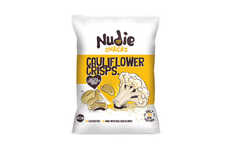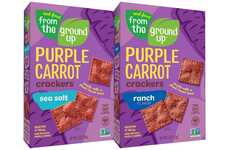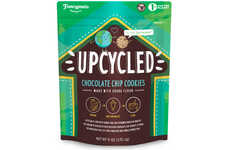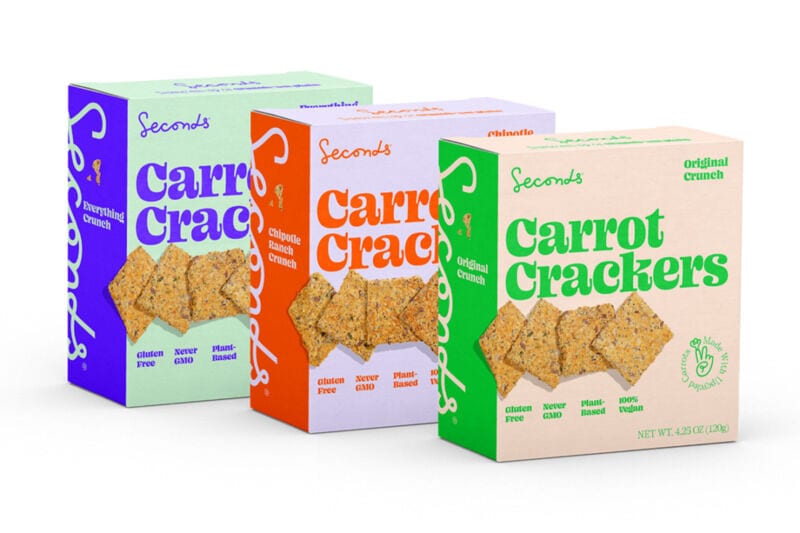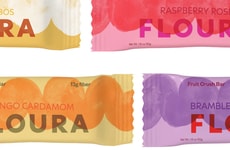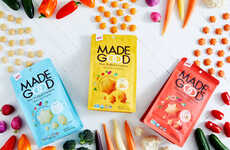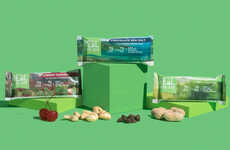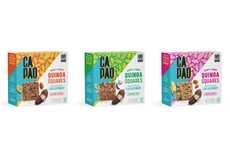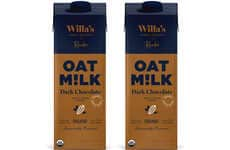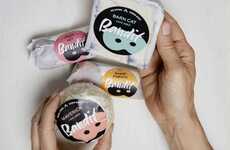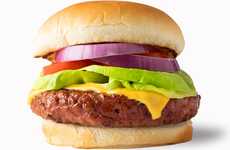
Seconds Repurposes Pulp Leftovers from Carrot Juice Processing
Laura McQuarrie — April 19, 2022 — Eco
References: seconds.nyc & foodbusinessnews.net
In the process of creating carrot juice, up to 80% of the weight in the processing is pulp leftover and this by-product is now being put to good use by Seconds' Carrot Crackers. This waste by-product is usually composted and this nutritious food ingredient is now being used to create tasty kinds of crackers that help to reduce food waste.
The Carrot Crackers can be enjoyed in flavors like everything crunch, original crunch and chipotle ranch crunch and the crackers contain five grams of fiber and four grams of protein per serving of 13 crackers. Thanks to the mild flavor of carrots, the vegetable pulp provides a great base for the company to build interesting flavors on. Additionally, carrots are already foods that people are familiar with, which helps to make the upcycled product all the more approachable.
The Carrot Crackers can be enjoyed in flavors like everything crunch, original crunch and chipotle ranch crunch and the crackers contain five grams of fiber and four grams of protein per serving of 13 crackers. Thanks to the mild flavor of carrots, the vegetable pulp provides a great base for the company to build interesting flavors on. Additionally, carrots are already foods that people are familiar with, which helps to make the upcycled product all the more approachable.
Trend Themes
1. Food Waste Upcycling - Finding new ways to reuse by-products in food production can create tasty new products and help reduce waste.
2. Sustainable Snacking - Consumers are increasingly seeking snacks that are made from sustainable and eco-friendly sources, such as upcycled ingredients.
3. Plant-based Protein - Upcycled plant-based ingredients in snacks can provide a sustainable source of protein that appeals to consumers who are reducing their consumption of animal products.
Industry Implications
1. Food and Beverage Industry - Companies can develop new products and reduce waste by upcycling by-products from food and beverage production, such as using carrot pulp to make crackers.
2. Sustainable Packaging Industry - In addition to using upcycled ingredients, companies can further reduce waste by using sustainable packaging materials that are recyclable or compostable.
3. Vegan and Vegetarian Food Industry - Upcycling plant-based ingredients to create snack products can appeal to the growing market of vegan and vegetarian consumers, who are seeking more sustainable food options.
3.7
Score
Popularity
Activity
Freshness



